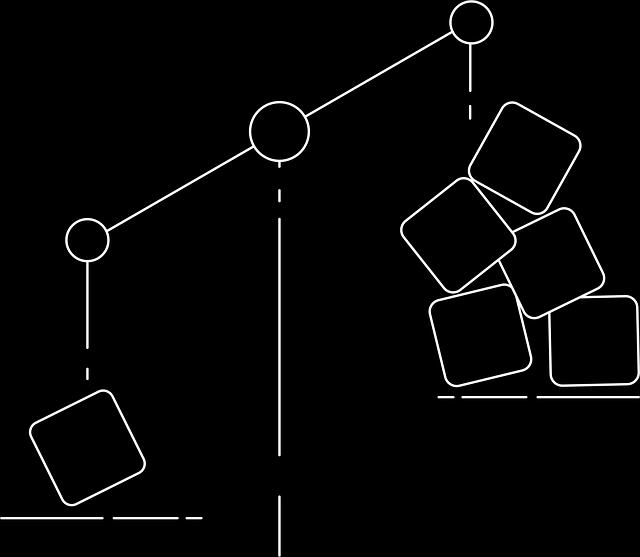Securities class actions, guided by Civil Law Litigation for Land Ownership Issues, empower investors to collectively hold accountable entities involved in securities fraud or misleading activities. This approach, focusing on reparations and rights restoration, leverages collective action against corporate misconduct, leading to substantial results and deterring future wrongdoings. Specializing attorneys play a crucial role in aggregating claims, coordinating strategies, and employing evidence-based tactics to pursue justice, while white-collar defense firms defend against these suits with intricate legal arguments. Class action litigation has transformed the financial sector, securing recoveries, corporate reforms, and evolving to address complex issues, strengthening legal frameworks.
Securities class actions are a powerful tool for shareholders, enabling collective legal pursuits against corporate wrongdoings. This article explores the intricate world of class action litigation, from its civil law roots to unique applications in real estate disputes. We delve into key strategies and the evolving landscape, highlighting the impact on financial sectors. Understanding these cases requires a look at both traditional securities law and emerging trends, such as using Civil Law Litigation for land ownership issues within class actions.
- Understanding Securities Class Actions: A Legal Framework
- Civil Law Litigation: Unlocking Remedies for Shareholders
- Land Ownership Disputes: When Class Action Meets Real Estate
- Key Players and Strategies in Securities Class Suits
- The Impact and Future of Class Action Litigation in Finance
Understanding Securities Class Actions: A Legal Framework

Securities Class Actions encompass legal battles where investors band together to hold accountable entities responsible for misleading or fraudulent activities related to securities. This collective approach, facilitated by Civil Law Litigation principles, is particularly relevant in addressing land ownership issues that arise within complex financial structures. When individuals invest their money, they expect fairness and transparency; however, instances of corporate malfeasance can lead to significant losses and a need for redress.
These high-stakes cases often span across the country, reflecting the interconnected nature of modern financial markets. Legal frameworks governing securities class actions are designed to encourage aggrieved investors to take collective action, which can result in achieving extraordinary results. Such outcomes not only provide compensation for the harmed parties but also serve as a powerful deterrent against future misconduct, ensuring fairness and integrity within the financial sector.
Civil Law Litigation: Unlocking Remedies for Shareholders

In many jurisdictions, shareholders facing corporate wrongdoings have a powerful ally in Civil Law Litigation. This legal framework empowers them to seek remedies and hold accountable those responsible for securities fraud or misconduct. Unlike criminal proceedings focused on punishment, civil litigation for land ownership issues aims to provide reparations and restore rights. Shareholders can bring collective actions, allowing them to band together and leverage their combined resources to fight against white-collar and economic crimes.
An unprecedented track record of successful cases highlights the effectiveness of this approach. Through diligent legal strategies, plaintiffs have achieved complete dismissals of all charges against them, demonstrating the strength of Civil Law Litigation in safeguarding shareholder interests. This avenue offers a comprehensive solution for addressing securities class action issues, ensuring that investors can protect their rights and seek justice.
Land Ownership Disputes: When Class Action Meets Real Estate

In the realm of civil law litigation, land ownership disputes often present unique challenges that can benefit from the collective power of class action suits. When a community or group of individuals finds themselves in a legal battle against powerful entities over property rights, joining forces through class action can be transformative. This strategy allows for a more efficient allocation of resources and leverages the collective impact of numerous affected parties.
Class action provides a platform for voices to unite, ensuring that every member’s interest is represented. In cases involving real estate, this approach has proven effective in addressing complex matters such as fraud, misrepresentation, or unfair business practices related to property transactions. By pooling their resources and expertise, the respective businesses facing these challenges may find themselves on the defensive, leading to winning challenging defense verdicts that protect the rights of all involved.
Key Players and Strategies in Securities Class Suits

In securities class actions, key players include plaintiffs’ attorneys specializing in civil law litigation for land ownership issues and complex financial matters. They aggregate investor claims, coordinate legal strategies, and represent the collective interest of affected parties. These lawyers employ various strategies to achieve justice, such as amassing extensive evidence, conducting thorough expert analyses, and leveraging powerful investigative techniques to uncover wrongdoing.
Defending against these suits are white-collar defense firms, which bring a wealth of experience in navigating intricate legal landscapes. They focus on presenting compelling defenses, challenging the admissibility of evidence, and disputing allegations through meticulous fact-finding and robust procedural arguments. The goal is often to secure winning challenging defense verdicts that protect the respective business interests while ensuring accountability for any genuine misconduct.
The Impact and Future of Class Action Litigation in Finance

Class action litigation has significantly reshaped the financial sector, empowering investors to hold corporations accountable for misconduct. This powerful legal tool has led to substantial financial recoveries and brought about corporate governance reforms, fostering a more transparent market. As the practice continues to evolve, it plays a crucial role in addressing complex issues like white-collar and economic crimes, ensuring companies face consequences for their actions.
The future of securities class actions looks promising, with innovative strategies and legal precedents driving the resolution of disputes. Through successful challenges against robust defenses, plaintiffs’ attorneys have demonstrated the ability to secure justice and compensation for affected individuals. This trend signifies a strengthened legal framework, where even the most intricate cases can lead to complete dismissal of all charges, marking a significant impact on both the industry and Civil Law Litigation for Land Ownership Issues.
Securities class actions play a pivotal role in protecting investors’ rights, offering a powerful mechanism to hold wrongdoers accountable. By examining diverse scenarios, from civil law litigation for land ownership issues to complex securities disputes, we’ve highlighted the multifaceted nature of these legal battles. As class action litigation continues to evolve, understanding key strategies and player roles is essential for navigating this dynamic landscape. This knowledge ensures investors have access to effective remedies, fostering a fairer and more transparent financial environment.






